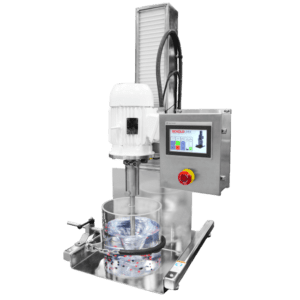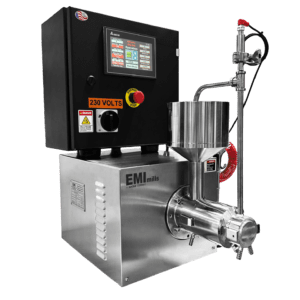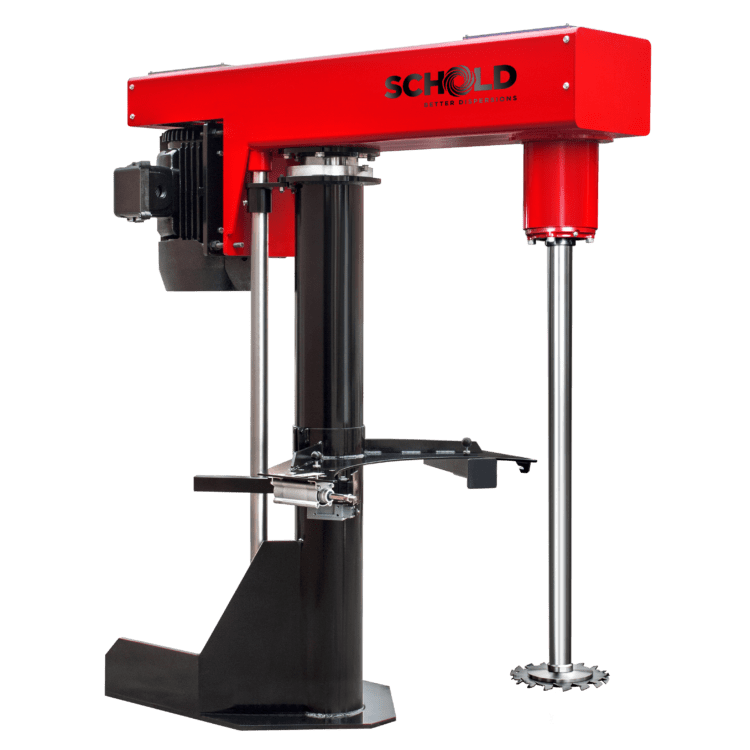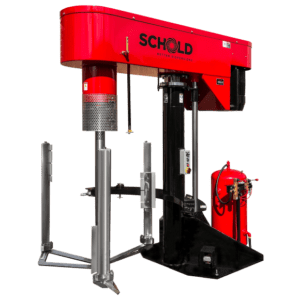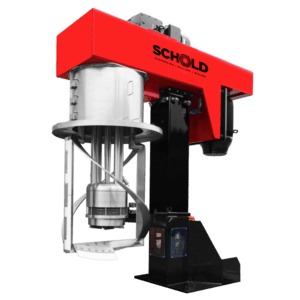Mixing Equipment for Cannabis Products
Schold provides mixing equipment for cannabis products as a trusted partner in this growing industry. Our high-speed dispersers and low-speed mixers/blenders are used for both laboratory and large-scale processing. Achieve uniform dispersion of cannabinoids, consistent blending and optimal particle sizes for various cannabis/CBD products, and more.
Mixing Equipment for Cannabis Products
Schold provides mixing equipment for cannabis products as a trusted partner in this growing industry. Our high-speed dispersers and low-speed mixers/blenders are used for both laboratory and large-scale processing. Achieve uniform dispersion of cannabinoids, consistent blending and optimal particle sizes for various cannabis/CBD products, and more.
Recommended Mixing Equipment
Find common base models/designs of mixing equipment for cannabis. Questions? Need a quote? Schold can assist with questions or customized options specific for your application.
Product Applications
Cannabis is used for applications in a wide range of industries, which require specific properties and performance. Schold work with many companies in this space, and our dispersers, mixers, and mills are designed to process these cannabis applications (along with many others):


- Vape Cartridges: Dispersing and mixing equipment is crucial for creating homogenous vape cartridge formulations, ensuring consistent cannabinoid distribution and optimal viscosity for vaporization.
- Edibles: Mixing equipment is essential for creating homogeneous blends in the production of cannabis-infused edibles, such as gummies, chocolates, and baked goods.
- Tinctures: Dispersing and mixing are important in the preparation of cannabis tinctures, ensuring an even distribution of cannabinoids in the liquid base.
- Topicals and Creams: Mixing and milling equipment formulate cannabis-infused topicals and creams to achieve uniform dispersion of cannabinoids and other active ingredients.
- Capsules: Milling equipment achieves the appropriate particle size for cannabis powder used in capsules, ensuring consistent dosing.
- Beverages: Mixing equipment creates cannabis-infused beverages, ensuring uniform dispersion of cannabinoids in the liquid matrix.
- Sublingual Strips: Dispersing and mixing play a role in the formulation of sublingual strips, ensuring an even distribution of cannabinoids for consistent dosing.
- Pharmaceuticals: In the pharmaceutical sector, dispersing, mixing, and milling equipment formulate cannabinoid-based medications, ensuring precise dosing and uniform distribution.
- Concentrates: Milling equipment produces cannabis concentrates, such as hash or kief, to achieve the desired particle size and consistency.
- Pre-rolls and Blunts: Dispersing and mixing equipment prepares cannabis-infused pre-rolls and blunts, ensuring an even distribution of cannabinoids.
- Infused Oils: Dispersing and mixing equipment creates cannabis-infused oils, ensuring consistent cannabinoid distribution throughout the product.
- Dissolvable Powders: Milling equipment creates dissolvable cannabis powders, ensuring the uniform dispersion of cannabinoids for convenient dosing.
Mixing/Processing Challenges
Cannabis manufacturers encounter a spectrum of challenges during processing, specifically product consistency, quality, and compliance. Whether you choose Schold or another partner, selecting the proper mixing equipment for cannabis is crucial for overcoming these common issues:
- Inconsistent Cannabinoid Distribution: Uniform dispersion of cannabinoids, such as THC and CBD, is critical for product consistency and potency. Variations lead to uneven dosages, causing regulatory compliance issues and negative consumer satisfaction.
- Particle Size Control: Achieving precise control over particle size is paramount, particularly in vaping products where particle size influences aerosolization. Controlling this factor ensures optimal performance, dosage accuracy, and a consistent user experience.
- Homogeneity in Edibles: Achieving homogeneity in cannabis-infused edibles is a challenge. Inconsistent mixing results in “hot spots” within the product, leading to variations in cannabinoid concentration and violations of regulatory standards. Ensuring homogeneity is crucial for accurate dosing and consumer safety.
- Temperature-sensitive Compounds: Some cannabinoids and terpenes are sensitive to temperature fluctuations. Controlling processing temperature is essential to preserve the integrity of these compounds, ensuring the product retains its intended properties.
- Scaling Up Production: As demand for cannabis products increases, manufacturers face scaling challenges. This involves adapting mixing and milling processes for larger batches while maintaining product consistency, quality, and adherence to regulatory standards.
- Quality Control: Implementing stringent quality control measures is an essential component of cannabis manufacturing. Quality control prevents contamination, inconsistency, and non-compliance, which bolsters consumer trust and regulatory compliance.

- Inconsistent Cannabinoid Distribution: Uniform dispersion of cannabinoids, such as THC and CBD, is critical for product consistency and potency. Variations lead to uneven dosages, causing regulatory compliance issues and negative consumer satisfaction.
- Particle Size Control: Achieving precise control over particle size is paramount, particularly in vaping products where particle size influences aerosolization. Controlling this factor ensures optimal performance, dosage accuracy, and a consistent user experience.
- Homogeneity in Edibles: Achieving homogeneity in cannabis-infused edibles is a challenge. Inconsistent mixing results in “hot spots” within the product, leading to variations in cannabinoid concentration and violations of regulatory standards. Ensuring homogeneity is crucial for accurate dosing and consumer safety.
- Temperature-sensitive Compounds: Some cannabinoids and terpenes are sensitive to temperature fluctuations. Controlling processing temperature is essential to preserve the integrity of these compounds, ensuring the product retains its intended properties.
- Scaling Up Production: As demand for cannabis products increases, manufacturers face scaling challenges. This involves adapting mixing and milling processes for larger batches while maintaining product consistency, quality, and adherence to regulatory standards.
- Quality Control: Implementing stringent quality control measures is an essential component of cannabis manufacturing. Quality control prevents contamination, inconsistency, and non-compliance, which bolsters consumer trust and regulatory compliance.

